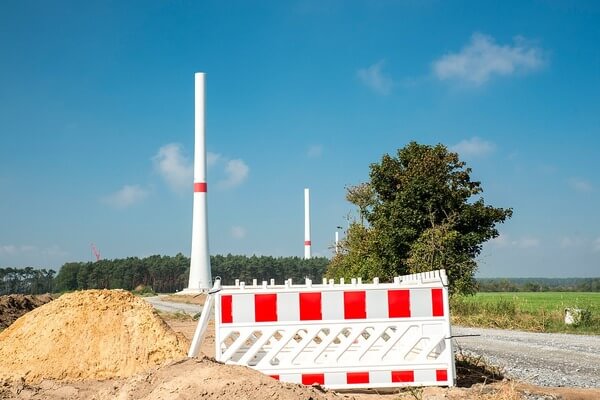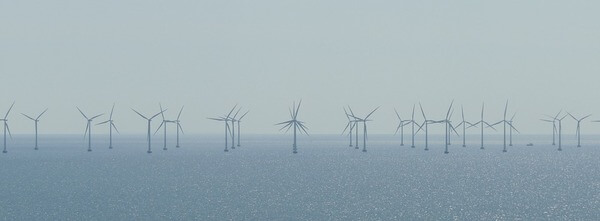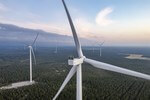News Release from windfair.net
Wind Industry Profile of
Showdown in Berlin
After only 86 wind turbines were installed in Germany in the first half of the year and the auctions for onshore wind energy have been under-signed for months, there is great unrest in the German wind industry. Although it is becoming cheaper and cheaper to generate wind power and Germany urgently needs wind power to achieve its climate protection targets, expansion has stalled.
That's why a crisis meeting is scheduled for today in Berlin. In the run-up to the meeting, both onshore and offshore representatives drew attention to themselves with various proposals for immediate measures. Something must change urgently, otherwise a still larger loss of jobs threatens, so the experts. This has already added up to 20,000 jobs lost in almost one year. More like insolvent turbine manufacturer Senvion will follow, as the company announced last week.
"Our goal is to expand wind energy, which is not only compatible with nature and landscape, but also sufficient in terms of energy economy and climate policy. In view of the current situation, a clear commitment to climate protection and the expansion of renewable energies is needed on the part of all parties involved - the Federal Government, the German Bundestag, the federal states and the municipalities. This commitment must be followed by the implementation of concrete measures to obtain more approvals for onshore wind energy projects," demand business and environmental associations alike.

Red or green light for further expansion in Germany? (Image: Pixabay)
One of the immediate measures called for is to enable repowering at existing locations. This feature is all the more urgent in view of the fact that the first turbines will no longer be eligible for state-subsidies funding (EEG) in the coming years. The operators are therefore faced with the immediate question of whether it is still worthwhile to continue operating the turbines, repowering is possible or whether the sites will be closed. If the current situation won't change, Germany will no longer face the problem of a halting expansion, but will lose additional older turbines.
But permit backlog and the regulation of distances between houses and turbines are also on the agenda. With Bavaria - and recently also North Rhine-Westphalia in a similar form - two federal states have already almost abandoned the active construction of wind farms.
While the onshore industry is already in full crisis mode, the offshore industry is threatened by a thread breakage in the coming year. Thus the industry is calling for the 'extension cap' to be abolished as it represents a major hurdle, especially for the larger projects off the German coasts. In addition, a special contribution for offshore wind power needs to come this year.

The German offshore wind industry is threatened by a thread breakage next year (Image: Pixabay)
According to industry representatives, the gap in offshore expansion that will occur from 2020 cannot be justified in terms of industrial policy. "Germany should regain its leading position. That is why the announced special contribution must at least be implemented promptly." Better utilization of manufacturers' production capacity increases the competitiveness of German turbines, secures the perspective of companies along the entire supply chain and makes it possible to use the export potential on the growing world market. "The special contribution from offshore wind energy provided for in the coalition agreement must now come," is the demand.
"In order not to further jeopardize wind value creation and to ensure that climate protection targets will be achieved by 2030, the industry now needs reliable, long-term framework conditions." Today the Federal Ministry of Economics has the opportunity to send such a signal.
- Author:
- Katrin Radtke
- Email:
- press@windfair.net
- Keywords:
- Germany, association, company, Federal Economics, Wind Summit, extension, turbine, offshore, onshore, cap










